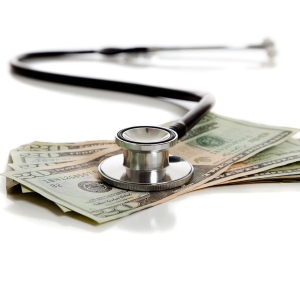Even in a Democratic primary where all seven candidates identify as “progressive”, health care is one issue where candidates are divided. While they all support the eventual goal of universal coverage, how to get there is a question that stokes disunion within the crowded field.
Two candidates in New York’s 19th Congressional District, Antonio Delgado and Pat Ryan, support “universal health care,” calling for a modest proposal for achieving the same goal involving fixes to existing health law. Essentially, they want to fix the Affordable Care Act rather than scrapping it in favor of an entirely new law.
Delgado clarified, “I believe we should move in the direction of Medicare for All,” and that “a necessary first step is giving people the choice to buy into Medicare.”
But some candidates are not fans of such compromises. “[I am] fighting Medicare for all,” said Dave Clegg, a candidate in NY19, “and not advocating for an ill-defined version of ‘universal health care’ or half measures.” He is joined in this opinion by four of his colleagues, as well as many prominent progressives in Congress such as Bernie Sanders and Elizabeth Warren.
Races across the country are seeing similar divides. In one California district, a progressive PAC is attacking a centrist Democrat for his refusal to support Medicare-for-all, calling him a “bad Democrat.”
Alexandra Ocasio-Cortez, a progressive in New York’s 14th district challenging a powerful Democratic incumbent, claimed that her opponent Rep. Joseph Crowley co-sponsoring a Medicare for All proposal shortly after she announced her candidacy served as “proof that he was moving to shore up the progressive base.”
But according to Ocasio-Cortez spokesperson Saikat Chakrabarti, Crowley’s support of Medicare for All is too little too late. “Our opponent had a chance to lead on health care as a member of the powerful House Ways and Means Committee when Democrats were in control of the House, Senate, and presidency, and he did not push for a single payer plan then,” she said.
Asked whether Ocasio-Cortez would ever compromise her stance on single-payer for a more moderate proposal, Chakrabarti said “absolutely not,” stating that “it is completely immoral for the richest nation in the history of the world to not enact a single payer plan immediately that could save millions.”
“Alexandria does not believe in compromising when lives are at stake,” she said.
A Morning Consult poll found that while health care ranked third among top policy issues for all voters in 2018, after security and economic issues, it was a close second for Democrats, with 22 percent naming it as their top priority in 2018 just behind 24 percent for the economy.
Those numbers clue us in on just why health care is such a contentious issue amongst the Democratic ranks.
“Democrats are split by health care politics because its base voters and leaders genuinely care about the issue,” said Sidney Plotkin, a professor of political science at Vassar College. But, he continued, “there is no consensus in the party about whether to scrap the ACA with a single payer plan, or to amend it so that its remaining cost and coverage problems are remedied.”
Asked whether health care could become a dividing partisan issue to the degree that abortion or guns are, Plotkin said it’s “not likely,” because unlike those issues, “health care is a dense rope made up of many twisting strands, financial, administrative and technical.”
“I think the chances for single payer are slight at best,” he stated. “Much more likely if Democrats win control of Congress is continued tinkering with the Affordable Care Act.”
Plotkin is not the only analyst who believes that, despite single-payer popularity, Democrats are more likely than not to gravitate towards more moderate efforts to fix the ACA.
Chris Pope, a senior fellow at the Manhattan Institute, posited, “Single-payer will be an important slogan in the Democratic primary.” But, he argued that the political realities of Washington would force “a Democrat of any faction to settle for some more modest reforms to prop up the [ACA] exchanges.”
Despite this, single-payer plays well with Democratic voters and even some outside the party. A Washington Post-Kaiser Foundation poll found that 51 percent of Americans favor single-payer health care while just 43 do not, with 74 percent of Democrats saying they support it. The poll also found that 53 percent of Americans support Obamacare.
But Pope contends with the idea that single-payer plans, such as medicare-for-all, would be popular with voters if implemented. “There is no free lunch with single-payer,” he argued, “It can only force people to pay more, or force them to receive less.”
Moving into the general election, health care is unlikely to dissipate as a key issue on the campaign trail. Republicans have struggled in the health care debate due to their failure to pass replacements to the Affordable Care Act. But Democrats, it seems, might have their own difficulties on the issue come November.

